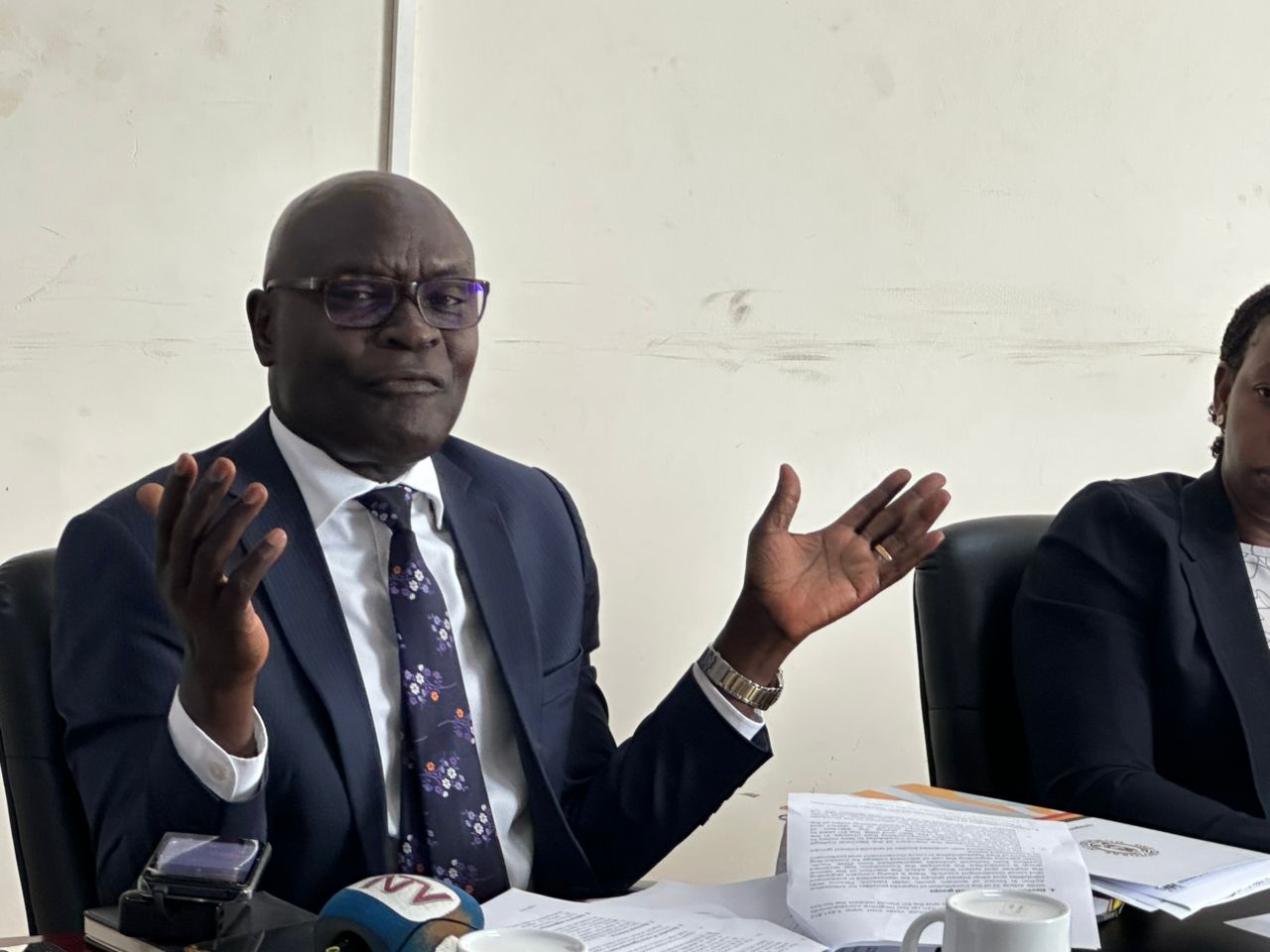The Electoral Commission (EC) has blamed delays in the mandatory constituency demarcation exercise on the lack of detailed population data from the Uganda Bureau of Statistics (UBOS), a key requirement for determining fair and representative electoral boundaries.
Speaking during a high-level engagement with the Equal Opportunities Commission (EOC), EC Chairperson Justice Simon Byabakama said the Commission was awaiting the full granular data set from UBOS before proceeding with the review of constituency boundaries.
He emphasized that the recently released data is now under analysis to finalize the National Voters Register the foundation for all electoral processes, including presidential, parliamentary, local government, and Special Interest Group (SIG) elections.
Byabakama noted that while SIGs such as persons with disabilities (PWDs), youth, and older persons have their own registers, these are derived from the National Voters Register, making its accuracy and completion critical to inclusive democratic participation.
“It doesn’t matter if your disability is visible and categorized in law. If you are not in the national register, you cannot vote,” he emphasized. He stressed the importance of maintaining a clean, verifiable, and updated voters’ register.
Addressing concerns about unequal representation, Byabakama acknowledged constitutional provisions requiring constituencies to have roughly equal populations.
However, he pointed to Article 63(4) of the Constitution, which allows for exceptions based on geography, communication challenges, and population density.
Addressing concerns about unequal representation, Byabakama explained that while the Constitution mandates constituencies to be as equal in population as possible, Article 63(4) provides for exceptions based on geography, means of communication, and sparsity of population.
He cited Karamoja as an example, where despite low population density, the region has multiple MPs due to geographical and infrastructural challenges.
A key concern raised by the EC was the lack of effective civic and voter education. Justice Byabakama lamented that the electorate’s understanding of their constitutional power under Article 1 remains dangerously low.
“Many Ugandans have reduced their vote to the value of shs1,000 or a piece of soap,” he said. “They don’t appreciate that their vote is the source of all political authority in this country.”
He clarified the difference between civic education, which is the mandate of the Uganda Human Rights Commission (UHRC), and voter education, which is the EC’s responsibility. However, he emphasized that both are interconnected and crucial for fostering informed participation.
Despite efforts through radio shows, workshops, and community outreaches, the EC's civic engagement efforts have been severely constrained by limited funding.
“For the whole country, we receive only shs300 million per financial year for voter education. What can that do in a country of over 18 million registered voters?” he questioned. “We need at least shs3 billion to carry out meaningful voter outreach.”
Justice Byabakama expressed concern over low voter turnout, calling it a significant waste of public funds and a threat to democratic legitimacy.
“In 2021, we had over 18 million registered voters, but turnout was just 57.2%. We printed 20 million ballot papers, many of which went unused,” he noted, pointing out that ballots are printed abroad at a significant cost in foreign currency.
He urged political parties and candidates to play a more active role in mobilizing voters, warning that citizens who do not vote are effectively disenfranchising themselves.
“Don’t blame others if you get the wrong leaders. Blame yourself. Voting is not mandatory in Uganda, but the cost of inaction is leadership without accountability,” he said.
The Chairperson of the Equal Opportunities Commission (EOC), Safia Nalule Jjuuko, cited disparities in constituency representation based on population, noting that some sub-regions are heavily underrepresented in Parliament despite having large populations.
According to her, sub-regions like Teso, Buganda South, Bukedi, and Busoga are among the most affected by these disparities.
“Each of the four sub-regions has an average of 1.5 million people represented by just one MP,” she noted, emphasizing that such imbalances violate Article 62 and 63 of the Constitution, which mandate constituency demarcation based on population quotas and geographical features following a national census.
Nalule also decried the persistent low voter turnout during general elections, attributing it partly to inadequate civic and voter education.
She revealed that in the 2021 general elections, only 57.2% of the 18.1 million registered voters cast their ballots. Similarly, in 2016, voter turnout was just under 60%.
“Despite the EC’s efforts in registering voters, turnout remains low. This disenfranchises large sections of the population, especially marginalized groups,” she said, calling civic education an “equity issue” that must be communicated in accessible formats.
Further, Nalule criticized the exclusion of special interest groups such as youth, women, persons with disabilities (PWDs), and the elderly from electoral processes. She highlighted the absence of logistical support to facilitate their participation, such as transportation to polling venues and targeted voter education.
“In the past, the Electoral Commission facilitated voters, particularly for elections of representatives of special interest groups at district and sub-county levels. This has since ceased, leaving vulnerable groups disenfranchised,” she said.
She called on the EC to reinstate support mechanisms for these groups and improve civic education to foster inclusive participation in upcoming elections.
Nalule also urged the Commission to ensure fair electoral processes during the selection of party flag bearers for PWDs and other marginalized groups, citing irregularities in how these elections are currently managed.
“The process of electing NRM flag bearers for persons with disabilities involves large electoral colleges which are not adequately facilitated, thus compromising fairness and inclusivity,” she said.


